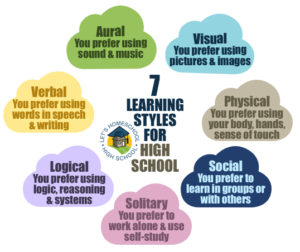< Previous ………. Next Topic >
Kick-Off: Student Expectations
Students are expected to follow course guidelines and actively participate in assigned work. Appropriate classroom decorum, reasonably focused effort, and combinations of individual-work and team-collaborations are important aspects of this curriculum.
Lesson 1 (or “Day 1”) Material
- Day 1 Instructor Presentation
- Kickoff student expectations handbook
- Kickoff classroom expectations worksheet
- Earth 10.1 First-of-Year Introduction
- Day 1 Rubric
Lesson 2 (or “Day 2”) Material
- Day 2 Instructor Presentation
- Day 2 Student Handout
- Day 2 Rubric
- Read Earth 10 – Science education
- Read Earth 10 – Manners and Decorum
- Read Earth 10 – School discipline
Lesson 3 (or “Day 3”) Material
Lesson 4 (or “Day 4”) Material
- Day 4 Instructor Presentation
- Day 4 Example Student Presentation (for practice)
- Day 4 Student Handout
- Day 4 Rubric
3:25 The 9 BEST Scientific Study Tips
4:36 7 Tips To Beat Exam Anxiety
3:15 The Science of Productivity
Compare Contrast and Debate
x
Resources Documents and Links
- resource
Special Notes and Notices
Each high school student has a “preferred learning style.” While all the different methods of learning can be useful to most students, one way of accommodating everyone is to vary the teaching approach (read more about this). Here are seven different ways to learn:
- Visual (spatial): You prefer using pictures, images, and spatial understanding.
- Aural (auditory-musical): You prefer using sound and music.
- Physical (kinesthetic): You prefer using your body, hands, and sense of touch.
- Verbal (linguistic): You prefer using words, both in speech and writing.
- Logical (mathematical): You prefer using logic, reasoning, and systems.
- Social (interpersonal): You prefer to learn in groups or with other people.
- Solitary (intrapersonal): You prefer to work alone and use self-study.
On your own paper, write down these expressions: seeing it, hearing it, hands-on, talking about it, thinking about it, group work, and working by myself. Rank these seven ways of learning from one to seven – where one is your favorite way and seven is your least favorite way to learn.
In Honeycutt Science, we use all seven ways.
Instructor: Consider displaying and reviewing examples with the students. Also consider reviewing classroom behavioral expectations handbook supplement along with illustrative cost analysis of difficult classroom behavior.
About us ……… Terms of use
